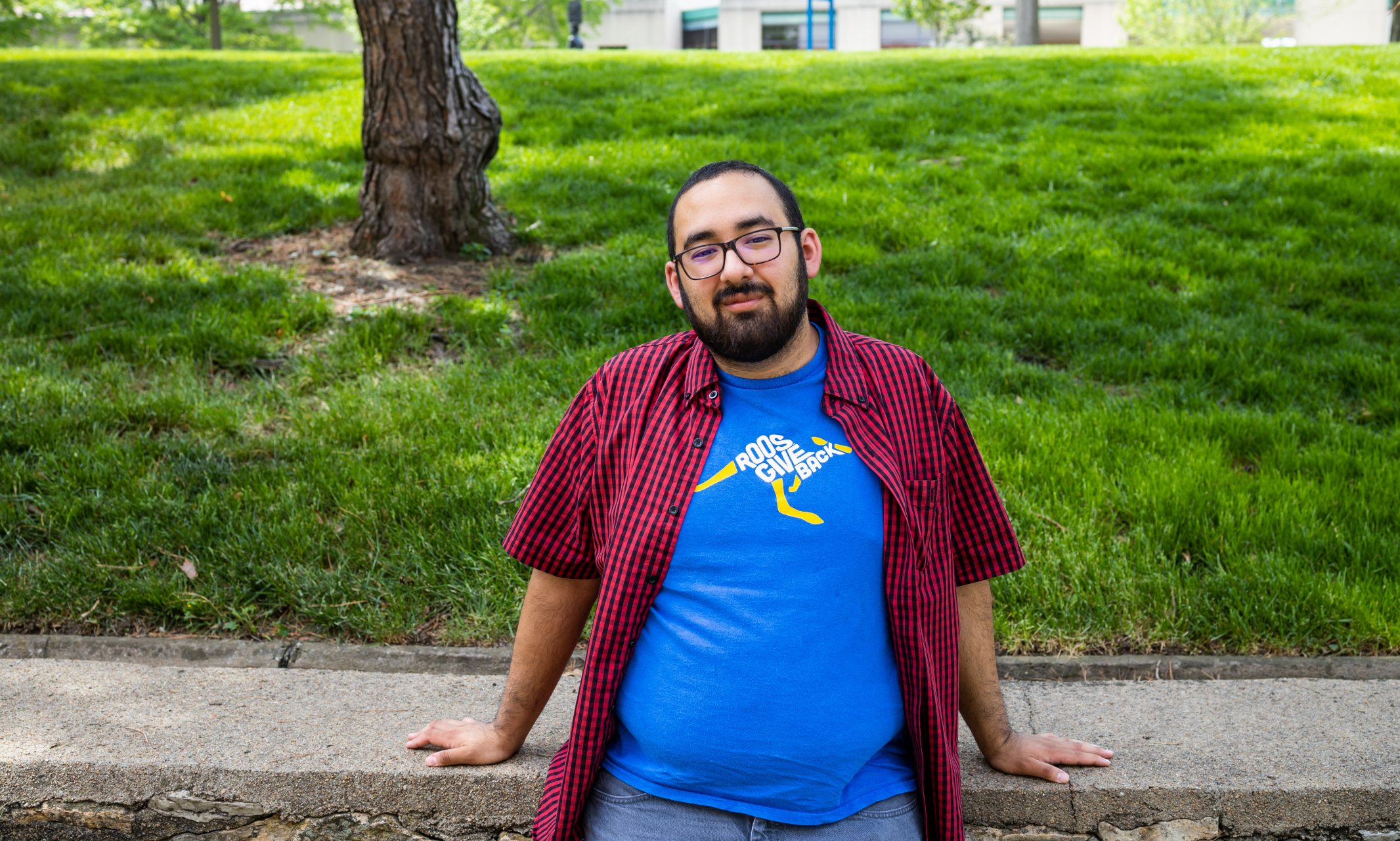A UMKC graduate student’s research into fatal and non-fatal shootings in Kansas City found that Black males are significantly more likely to survive gunshot wounds than other demographic groups.
Alejandro Cervantes, who completed his master’s degree in criminal justice and criminology in Spring 2023, presented his findings at the annual meeting of the Midwestern Criminal Justice Association in Chicago during the fall semester. He won first place in the graduate student poster competition at the meeting. The research forms the basis of his master’s thesis.
His study examined all shooting victims in Kansas City between 2015-2020. This included more than 760 homicides and 2,900 instances in which a victim was struck by a bullet but survived. His research documented a steady increase in both fatal and non-fatal shootings, particularly in 2020, when gun violence in Kansas City increased by 33%. He also discovered a unique interaction between race and sex, noting that Black male shooting victims were significantly more likely to survive than other victims.
Black victims were the highest demographic group in both fatal (76%) and non-fatal (75%) shootings. Males of all races were the victims in more than 80% of both fatal and non-fatal shootings. Black male victims tended to be younger than other groups in both categories overall, with younger Black male victims being more likely to survive a gunshot wound than older Black males.
Pursuing plausible explanations for these rates, Cervantes focused on community-police relationships in different neighborhoods. Lack of trust and confidence in police tends to make people more prone to taking matters into their own hands.
“Strained relationships with law enforcement results in retaliation becoming normalized when seeking retribution for being wronged in resolving interpersonal problems,” Cervantes said. He added that these same neighborhoods where trust in police is lacking also suffer serious socioeconomic problems, high rates of poverty and a lack of services.
The inspiration for the study, he said, came while - assisting with data entry for his thesis chair, Prof. Ken Novak.
“Reviewing and recoding the raw data gave rise to the questions presented in my thesis,” Cervantes said. “The greater goal in my work here is generating data that can be utilized by future researchers to enhance this field of study.”
“Alejandro’s research is timely, locally relevant and important,” Novak said. “This sheds further light on the fact that Black males are significantly overrepresented among shooting victims, and further demonstrates that the harm associated with firearm violence is not distributed equally throughout Kansas City.”
Cervantes, originally from Reseda, California, earned his bachelor’s degree in criminal justice and criminology from UMKC in 2019. He was able to attend the conference in Chicago thanks to a graduate student travel award from the UMKC School of Graduate Studies.
He is unsure at this point whether he will pursue a doctorate or go immediately into a career. His ultimate goal is to work for the FBI or the Bureau of Alcohol, Tobacco and Firearms as a data analyst analyzing firearm-related crimes.
Cervantes is grateful for the travel grant that allowed him to attend the conference, which had value beyond the first-place award.
“With those expenses covered I had the opportunity to explore and experience something new,” he said. “Attending and presenting at a conference like this gave me not only greater confidence in my skills, but feedback from others in my field helped shape my thesis into a better product.”
“This experience is a major highlight in my time at UMKC.”

